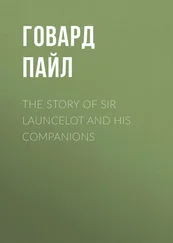Jean Plaidy - Murder Most Royal - The Story of Anne Boleyn and Catherine Howard
Здесь есть возможность читать онлайн «Jean Plaidy - Murder Most Royal - The Story of Anne Boleyn and Catherine Howard» весь текст электронной книги совершенно бесплатно (целиком полную версию без сокращений). В некоторых случаях можно слушать аудио, скачать через торрент в формате fb2 и присутствует краткое содержание. Жанр: Старинная литература, на русском языке. Описание произведения, (предисловие) а так же отзывы посетителей доступны на портале библиотеки ЛибКат.
- Название:Murder Most Royal: The Story of Anne Boleyn and Catherine Howard
- Автор:
- Жанр:
- Год:неизвестен
- ISBN:нет данных
- Рейтинг книги:3 / 5. Голосов: 1
-
Избранное:Добавить в избранное
- Отзывы:
-
Ваша оценка:
- 60
- 1
- 2
- 3
- 4
- 5
Murder Most Royal: The Story of Anne Boleyn and Catherine Howard: краткое содержание, описание и аннотация
Предлагаем к чтению аннотацию, описание, краткое содержание или предисловие (зависит от того, что написал сам автор книги «Murder Most Royal: The Story of Anne Boleyn and Catherine Howard»). Если вы не нашли необходимую информацию о книге — напишите в комментариях, мы постараемся отыскать её.
Murder Most Royal: The Story of Anne Boleyn and Catherine Howard — читать онлайн бесплатно полную книгу (весь текст) целиком
Ниже представлен текст книги, разбитый по страницам. Система сохранения места последней прочитанной страницы, позволяет с удобством читать онлайн бесплатно книгу «Murder Most Royal: The Story of Anne Boleyn and Catherine Howard», без необходимости каждый раз заново искать на чём Вы остановились. Поставьте закладку, и сможете в любой момент перейти на страницу, на которой закончили чтение.
Интервал:
Закладка:
There was one other way, and that was the way he wanted. He wanted it fiercely. While she lived he would continue to think of her enjoyed by and enjoying others; he could never bear that; she had meant too much to him, and still did. But their marriage had been a mistake; he had been completely happy with her before it, and he had never known a moment’s true peace since; and it was all her fault. She could not get a male child, which meant that heaven disapproved of their marriage. He could see no other way out of this but that that charming head should be cut from those elegant shoulders. His eyes glistened at the thought. Love and hatred, he knew, were closely allied. None other shall have her! was his main thought. She shall enjoy no more lovers; she shall laugh at me no more with her paramours! She shall die . . . die . . . die, for she is a black-browed witch, born to destroy men; therefore shall she be destroyed. She was guilty of adultery, and, worse still, incest; he must not forget that.
Ah, it grieved him that one he had once loved dearly should be too unworthy to live; but so it was . . . so it was. It was his painful duty to see justice done.
He said to Cranmer: “This is painful to me, Cranmer. I would such work as this had not fallen to my bitter lot!”
Cranmer was grieved too; he was terrified that this might turn back the King towards Rome. And then what of those who had urged the break? Cranmer imagined he could smell the pungent smell of burning faggots and feel the hot flames creeping up his legs.
He said that he was hurt and grieved as was His Majesty, for next to the King’s Grace he was most bound unto her of all creatures living. He would ask the King’s permission to pray for her; he had loved her for the love he had supposed her to bear to God and the gospel. He hastened to add that all who loved God must now hate her above all others, for there could never have been one who so slandered the gospel.
Poor chicken-hearted Cranmer went in fear and trembling for the next few weeks. He could wish his courage was as strong as his beliefs. What if he who had been helped by the Queen, whose duty really lay towards her now, were clapped into the Tower! Those who were high one day, were brought low the next. He thought of a girl he had loved and married in Nuremburg, whither he had gone to study Lutheran doctrines, and whom he had left in Nuremburg because he had been called home to become Archbishop of Canterbury. It had been heartbreaking to leave her behind; she was sweet and clinging; but Henry believed in the celibacy of priests, and what would he have said to a priest who had married a wife? He had left her for Henry; had left a bride for an archbishopric, had sacrificed love for a high place at court. What if he should fall from that high place to a dungeon in the Tower! From the Tower to the stake or the block was a short step indeed.
Henry found it comforting to talk with Cranmer; Cranmer was eager as he himself to do what was right.
“If she has done wrong,” said Cranmer, “then Your Grace will punish her through God.”
“Through God,” said Henry. “Though I trust she may yet prove her innocence. I would say to you, my lord, that I have no desire in the world to marry again unless constrained to do so by my subjects.”
“Amen!” said Cranmer, and tried not to show by his expression that he must think of Jane Seymour and those reports he had heard that she was already with child.
Henry patted the Archbishop’s shoulder, called him his good friend; and Cranmer begged that this sad matter should not cause the King to think less of the gospel.
“I but turn to it more, good Cranmer.”
Cranmer left happier, and the King was relieved by his visit.
He called to his son, the young Duke of Richmond, and would have him stand before him that he might embrace him.
“For I feel tender towards you this night, my son.”
He was thinking of Anne even as he spoke. How often had she discountenanced him! How often had she disturbed him! And she, laughing at him . . . in the arms of his courtiers . . . Norris . . . Weston. . . . Their faces leaped up in his mind, and were beside Anne’s, laughing at him.
Fiercely he embraced his son; tears of self-pity came into his eyes and brimmed over onto the boy’s head.
“Your Majesty is deeply disturbed,” said the young Duke.
Henry’s voice broke on a sob. He remembered a rumor that when he had thought of going to France and leaving Anne as Regent, she had talked wildly of getting rid of Mary; some had said she meant to poison her.
He held the boy against his chest.
“You and your sister Mary ought to thank God for escaping that cursed and venomous whore who tried to poison you both!” he declared.
Anne was desolate. The weary days were passing. There were with her two women, day and night, whom she hated and knew to be her enemies. These had been sent as her attendants by command of the King. They were a certain Mrs. Cosyns, a spy and a talebearer, and her aunt, Lady Boleyn, who was the wife of her uncle, Sir Edward. This aunt had always been jealous of her niece, right from the time when she was a precocious child considered in the family to be clever. These two, at Cromwell’s instigation, wore her down with their questions as they tried to trap her into admissions; they were sly-faced, ugly women, envious, jealous women who enjoyed their position and were made most gleeful by the distress of the Queen. Every chance remark that fell from her lips was repeated with some distortion to make it incriminating. This was just what Cromwell wanted, and he was therefore pleased with these two women. Those ladies whom she would have liked to have beside her, were not allowed to come to her. She longed to talk with Margaret Lee and Mary Wyatt, with her own sister, Mary, with Madge; but no, she must be followed, no matter where she went, by these two odious females or by Lady Kingston who was as cold as her husband and had little sympathy, having seen too much suffering in her capacity of wife of the Constable of the Tower to have much to spare for one who, before this evil fate had befallen her, had enjoyed in plenty the good things of life.
But news filtered through to Anne. Her brother had been arrested. On what charge? Incest! Oh, but this was grotesque! How could they say such things! It was a joke; George would laugh; they could not hurt George. What had George done to deserve this? “For myself,” she cried, “I have been foolish and careless and over-fond of flattery. I have been vain and stupid. . . . But oh, my sweet brother, what have you ever done but help me! I would die a thousand deaths rather than you should suffer so through me.”
The sly women nodded, carefully going over what she had said. By eliminating a word here, a sentence there, they could give a very good account of themselves to Thomas Cromwell.
“Wyatt here!” she exclaimed. “Here in the Tower?” And she wept for Wyatt, calling him Dear Thomas, and was over-wrought, recalling the happy days of childhood.
“Norris is here. Norris accused me. . . . Oh, I cannot believe it of Norris. . . . Oh, I cannot! He would never betray me.”
She could not believe that Norris would betray her! Then, argued Cromwell, if she cannot believe he would betray her, is not that an admission that there is something to betray?
When she was tired, they would pretend to soothe her, laying wily traps.
“What of the unhappy gentlemen in the Tower?” she wanted to know. “Will any make their beds?”
“No, I’ll warrant you; they’ll have none to make their beds!”
She showed great solicitude for the comfort of her paramours, they reported.
“Ballads will be made about me,” she said, smiling suddenly. “None can do that better than Wyatt.”
Читать дальшеИнтервал:
Закладка:
Похожие книги на «Murder Most Royal: The Story of Anne Boleyn and Catherine Howard»
Представляем Вашему вниманию похожие книги на «Murder Most Royal: The Story of Anne Boleyn and Catherine Howard» списком для выбора. Мы отобрали схожую по названию и смыслу литературу в надежде предоставить читателям больше вариантов отыскать новые, интересные, ещё непрочитанные произведения.
Обсуждение, отзывы о книге «Murder Most Royal: The Story of Anne Boleyn and Catherine Howard» и просто собственные мнения читателей. Оставьте ваши комментарии, напишите, что Вы думаете о произведении, его смысле или главных героях. Укажите что конкретно понравилось, а что нет, и почему Вы так считаете.












